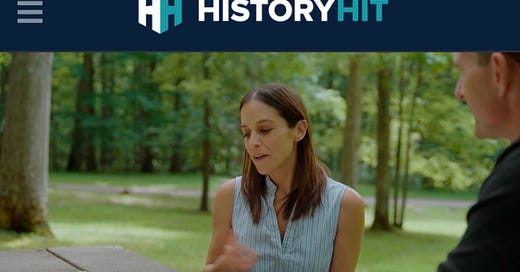"Are you prepared for the storm of love making with which you will be assailed?"
For Valentine's Day, I brought something for everyone in the class.
Over the summer, I met up with Dan Snow in Pennsylvania to film an episode of History Hit about George Washington’s epic eff up: As a young man, he led an expedition *for the British* into the wilds …
Keep reading with a 7-day free trial
Subscribe to Study Marry Kill to keep reading this post and get 7 days of free access to the full post archives.




